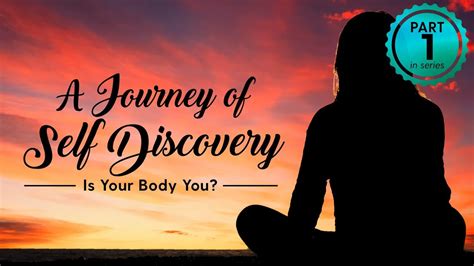The Path of Yoga: A Journey of Self-Discovery and Personal Transformation
Yoga, an ancient practice rooted in India, has transcended cultural boundaries to become a global phenomenon. While many are drawn to its physical benefits, the true essence of yoga goes far beyond physical postures (asanas). Yoga is, at its core, a profound journey of self-discovery and personal transformation, guiding individuals toward inner peace, self-awareness, and a deeper connection with the universe. This article explores the historical origins of yoga, its current state as a spiritual and physical discipline, and its transformative power in personal development and self-discovery.
Key Concepts of Yoga and Self-Discovery
At its foundation, yoga is a holistic system that integrates the body, mind, and spirit. The key concepts of yoga encompass more than just physical movement. These include:
- Asanas (Physical Postures): The physical aspect of yoga involves various postures designed to strengthen, stretch, and balance the body.
- Pranayama (Breath Control): This practice of controlled breathing helps regulate energy flow and calm the mind.
- Meditation: Meditation practices in yoga cultivate mindfulness, focus, and inner tranquility.
- Yamas and Niyamas (Ethical Guidelines): These moral and ethical disciplines guide practitioners on the path of self-discipline and personal growth.
- Karma Yoga (Selfless Action): This form of yoga emphasizes acting in service to others without attachment to outcomes.
- Bhakti Yoga (Devotion): Devotion to a higher power or a sense of oneness with the universe is an essential aspect of yoga.
Historical Context of Yoga
Yoga’s origins date back over 5,000 years in the Indus Valley Civilization, where it was practiced as part of spiritual rituals. The earliest known texts, the Vedas, mention meditation practices that are now seen as part of the yoga tradition. Over time, yoga evolved, with prominent scriptures such as the Bhagavad Gita and the Yoga Sutras of Patanjali elaborating on various aspects of the practice.
The Yoga Sutras of Patanjali, written around 400 CE, are especially influential in defining yoga as a pathway to self-realization through discipline and practice. The eight limbs of yoga, or Ashtanga, outlined in the Sutras, provide a comprehensive framework for the physical, mental, and spiritual journey of the practitioner.
Yoga experienced a surge in popularity in the West during the late 19th and early 20th centuries, largely due to the efforts of Indian teachers like Swami Vivekananda and Paramahansa Yogananda. Today, yoga has become a global movement, practiced by millions for its physical and mental health benefits, but its spiritual roots remain a vital aspect of the tradition.
Current State of Yoga and Self-Discovery
In the contemporary world, yoga has taken on multiple forms. While many people practice yoga primarily for fitness and stress relief, others engage in yoga for its deeper spiritual benefits. Yoga studios, retreats, and online platforms offer access to classes for all levels, ranging from gentle restorative yoga to rigorous vinyasa flow. Despite the diversity in practice, yoga’s central goal remains unchanged: self-awareness and inner transformation.
The modern practice of yoga also includes a growing emphasis on mindfulness and meditation. As individuals seek balance in an increasingly fast-paced and stressful world, yoga offers an antidote to the constant busyness of modern life. Practitioners use yoga as a tool to reconnect with their bodies, manage stress, and achieve emotional and mental clarity.
Practical Applications of Yoga in Self-Discovery
Yoga is not just a physical practice; it has practical applications in daily life that contribute to personal growth and self-discovery. For example:
- Improved Mental Clarity: Through regular meditation and mindful breathing, yoga practitioners report enhanced mental clarity, focus, and decision-making abilities.
- Emotional Resilience: Yoga helps practitioners develop emotional resilience by encouraging them to stay present and mindful in the face of stress and adversity.
- Self-Awareness: By cultivating mindfulness and body awareness, yoga helps individuals tune into their thoughts, emotions, and physical sensations, leading to greater self-awareness.
- Spiritual Growth: For many, yoga provides a framework for spiritual exploration, helping them connect with a deeper sense of meaning and purpose in life.
Case Studies in Yoga and Self-Discovery
To understand the transformative power of yoga, we can look at several case studies of individuals who have experienced profound changes through their practice:
| Individual | Challenge | Yoga Practice | Outcome |
|---|---|---|---|
| Sarah, a corporate executive | Work-related stress and burnout | Daily meditation and vinyasa yoga | Reduced anxiety, improved mental clarity, and better work-life balance |
| Ravi, a war veteran | Post-traumatic stress disorder (PTSD) | Trauma-informed yoga and meditation | Increased emotional regulation, reduced flashbacks, and improved overall well-being |
| Elena, a college student | Difficulty managing anxiety and depression | Restorative yoga and mindful breathing | Enhanced emotional resilience, improved mood, and greater self-awareness |
Stakeholder Analysis: Who Benefits from Yoga?
Yoga impacts a wide range of stakeholders, including individuals, communities, and organizations. The key beneficiaries include:
- Individuals: Yoga provides personal growth, physical health, mental well-being, and spiritual transformation for practitioners of all ages and backgrounds.
- Yoga Instructors: Teachers and instructors benefit from the growing demand for yoga classes and can contribute to the well-being of their students while fostering their own professional growth.
- Healthcare Professionals: Yoga has been embraced by many healthcare professionals as an adjunct to traditional therapies, especially in mental health, pain management, and rehabilitation.
- Corporate Organizations: Many businesses offer yoga as part of wellness programs to improve employee productivity, reduce stress, and promote a healthy work environment.
Implementation Guidelines for Yoga Practice
For those new to yoga or looking to integrate it into their routine, the following guidelines can help facilitate a successful practice:
- Start Slow: Begin with beginner-friendly classes or tutorials to understand the fundamentals of yoga.
- Commit to Consistency: Aim to practice regularly, even if it’s only for a few minutes a day, to experience the full benefits of yoga.
- Listen to Your Body: Yoga is about tuning into your own physical and mental needs. Don’t push beyond your limits.
- Seek Guidance: A qualified instructor can help you with alignment, technique, and modifications if needed.
- Integrate Meditation: Incorporate mindfulness practices and meditation into your routine to enhance the emotional and spiritual benefits of yoga.
Ethical Considerations in Yoga Practice
While yoga is universally beneficial, there are ethical concerns surrounding its commercialization and cultural appropriation. In many cases, the deep spiritual roots of yoga are diluted for profit, and its traditional context is often overlooked. Practitioners should be mindful of these concerns and aim to honor the cultural origins of yoga while adapting it for personal use.
Moreover, yoga instructors should prioritize the well-being of their students by promoting a non-judgmental, inclusive environment. It’s important that yoga remains accessible to everyone, regardless of age, body type, or financial means.
Limitations and Future Research in Yoga and Self-Discovery
While yoga has proven benefits for self-discovery, there are limitations in the current understanding of its effects. For example, more research is needed to understand how different styles of yoga impact mental health, especially in diverse populations. Additionally, there is limited research on the long-term effects of yoga practice on personal growth and spiritual transformation.
Future research should explore how yoga can be integrated into healthcare systems as a complementary treatment, especially for mental health conditions like depression and PTSD. Furthermore, studies that focus on how yoga influences cognitive functions and emotional resilience over time would help solidify its place in both traditional and modern therapeutic practices.
Expert Commentary: The Journey of Yoga and Self-Discovery
The journey of yoga is as








